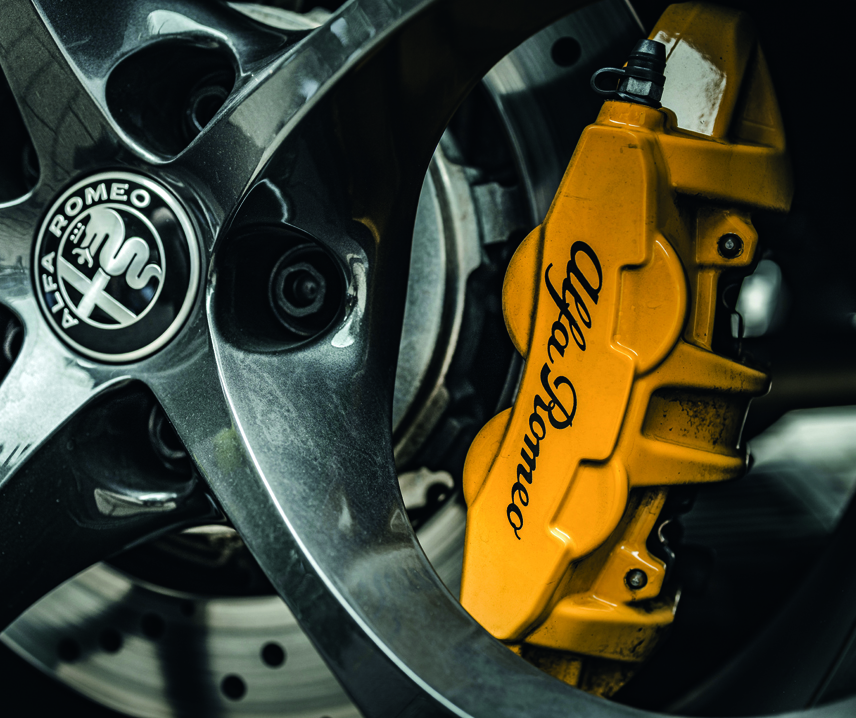
A recent survey from UK automotive software company Epyx has found that brake discs and pads were by far the most common job in vehicle repair workshops accounting for 16.3 percent. If you are running a major fleet, this could put a drain on both fleet availability as well as financial resources.
Reducing wear and tear on brakes and pads could see considerable savings for your business, not just in terms of lost working hours but also a reduction in traffic accidents and reduced courier insurance or fleet van insurance premiums.
How can you encourage drivers to adopt better driving styles to reduce wear and prevent the time vehicles are off the road or involved in accidents?
Van Courier Fleets
The global pandemic coupled with a massive online grocery shopping trend has certainly changed the way people spend and, most importantly, how courier delivery fleets are now becoming a more common sight on UK highways. Food ordering alone soared 99.2% in October and web sales grew 60.1 percent year on year.
Aside from adding more traffic pressure to our streets, there is also the effect of vans making multiple journeys with multiple stops in built up areas with the dynamic of a vehicle normally designed for long distances. And that puts a lot of strain on your brakes.
A standard vehicle braking system usually comprises a pair of brake pads, a brake disc and a brake calliper for each wheel. The pads are installed in the calliper with their friction material almost touching the two sides of the brake disc. When the brake pedal is pressed, hydraulic fluid in the calliper pushes each pad against each side of the rotating brake disc. This results in friction which slows down and eventually stops the vehicle. This action takes place all day, every day, week, month and year – so it’s no surprise that brake pads suffer wear and need replacing regularly.
Approximately 20 percent of brake pads have an audible indicator or dashboard light to alert you when your brake pads are running low. Most manufacturers recommend changing your brake pads once they get to 3mm. The legal limit in the UK is 1.5mm.
Remember, not all vehicles are equipped with brake pad sensors. If your van doesn’t have them, you must make sure the pads are inspected and checked regularly by a garage of your fleet technicians.
Brakes - keeping Your Van Fleet Legal
As they constitute part of the most important safety feature of cars and vans, the braking system is thoroughly checked during an MOT test. This includes brake pads, brake discs, and callipers.
In the UK legally every passenger carrying vehicle must be equipped with either an efficient braking system with two means of operation, or two efficient braking systems having separate means of operation. The braking system must be maintained in good condition and provide certain minimum braking efficiency. The construction and performance of braking systems must be in accordance with EU Directives and the UK Road Vehicles (Construction and Use) Regulations. For more information visit here:
https://www.gov.uk/guidance/mot-inspection-manual-for-private-passenger-and-light-commercial-vehicles/1-brakes#section-1-2-1
And wear and tear from brakes, tyres and road surfaces will soon overtake car exhaust fumes as the leading source of fine particles released into the air by road traffic, according to a new OECD report.
Check Your Brake Pads
A set of van brake pads should largely last from anywhere between 30,000 and 70,000 miles although a major factor in the lifespan of the pads is down to the way your van is driven. If your fleet is motorway driving, your brake pads should last longer than those driving in inner cities or on shorter journeys. Town journeys require more stopping and starting at roundabouts, traffic lights, intersections and junctions.
Another factor in brake pad wear is the weight and payload carried by your van. A lighter empty van is easier to slow down and stop with less effort on the brakes than a fully laden van which requires more effort from the pads. And front brake pads usually wear out faster than those at the rear because the front controls more of the braking load.
Here are some tips on how to reduce the wear on your brake pads:
- Drive with the traffic flow to avoid unnecessary heavy braking
- Leave a sufficient stopping distance from the car in front to enable only gentle pressure on the brakes when stopping – tailgating will wear out brake pads really quickly
- Reduce speed before driving around corners to reduce wear on your brake pads and tyres
- Remove unnecessary heavy objects from your vehicle
Loud screeching, a grinding noise, and pulling to one side are all signals that your brake pads are wearing down and need to be checked and replaced as soon as possible. If the brake pedal vibrates it could be a sign that the pads are warped due to excessive heat build-up.
Remedial work must be carried out by someone who is competent and confident – remember that brake pads are a critical part which, if fitted incorrectly, could lead to brake failure and serious consequences.